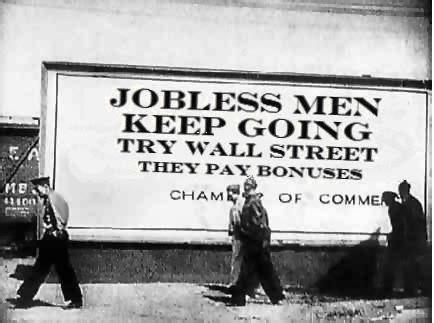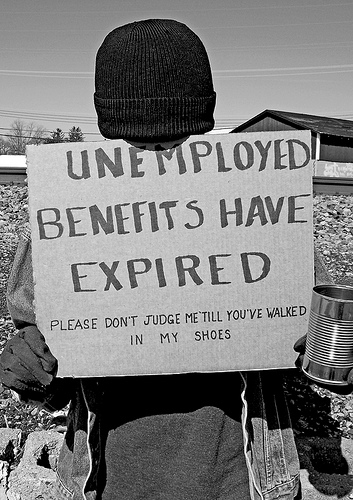
Flickr/<a href="http://www.flickr.com/photos/notionscapital/4258319634/">Mike Licht, Notion Capital.com</a>
By week’s end, 2.5 million out of work Americans will lose their unemployment benefits. Thanks in large part to the filibustering of the Republican caucus, a bill to extend those benefits couldn’t make it out of the Senate. Led by Sen. Mitch McConnell (R-Ky.), Senate Republicans repeatedly voted against extending jobless benefits, saying they wouldn’t support the measure because it adds to the deficit. That’s true: New support for the unemployed is deemed “emergency” funding, and that cost is indeed tacked onto the deficit. Another fact: This practice of categorizing jobless benefits as “emergency” funds is longstanding in Congress, something both Democrats and Republicans have done for decades. As Sen. Debbie Stabenow (D-Mich.), a leading voice unemployment support, recently put it, “15 million people unemployed is an emergency. [Republicans’ stance] is the most cynical, political position I have ever seen.”
It’s a position a vast majority of Americans don’t agree with, either. A Washington Post poll today reported that 62 percent of Americans think Congress should “approve another extension of unemployment benefits.” Seventy percent of respondents in a June Hart Research poll (pdf) say it’s too early to cut back on “benefits and health coverage for workers who lost their jobs.” And a December 2009 CNN poll found that 74 percent of people support creating more jobs even if it increases the deficit.
The GOP’s position also ignores the grim economic situation in many states, and the benefits of extending jobless relief. According to data released today by the National Employment Law Project, 16 states have 10 percent or higher unemployment (the national rate is 9.5 percent). Meanwhile, members of Congress from 15 of those states voted against extending benefits. Like Sen. John Ensign (R-Nev.), whose home state is plagued by foreclosures, a stagnant economy, and a 14 percent jobless rate—the highest in the country. Ensign’s “no” vote means 30,800 Nevadans will lose their benefits by the end of this week, and the state will thereby lose out on $105 million in stimulus.
Joining Ensign are Alabama senators Jeff Sessions and Richard Shelby (10.8 percent unemployment back home), Tennessee senators Lamar Alexander and Bob Corker (10.4 percent), and Georgia senators Jonny Isakson and Saxby Chambliss (10.2 percent). All told, the opposition by these six lawmakers, and the dozen or so House members from the same states who voted “no” (though the House passed its jobs bill), has cut off 209,600 people from extended benefits and cost $28.2 million in lost stimulus.
Right now, the likelihood of passing jobless benefits looks bleak in the Senate, with intransigent Republicans refusing to back down. They’ve been joined in opposition by Nebraska’s Democratic Senator Ben Nelson, too, who’s blocking the bill and has said that the jobless crisis isn’t that big of a deal. “At some point, it ceases to be an emergency,” he told reporters. Try telling that to the 2.5 million people whose safety net disappears on Friday.
For your reading pleasure, here’s a state-by-state breakdown of all the lawmakers in Congress who’ve voted against jobless benefits and the loss—in jobs and stimulus—to their states stemming from that vote.













